11:10
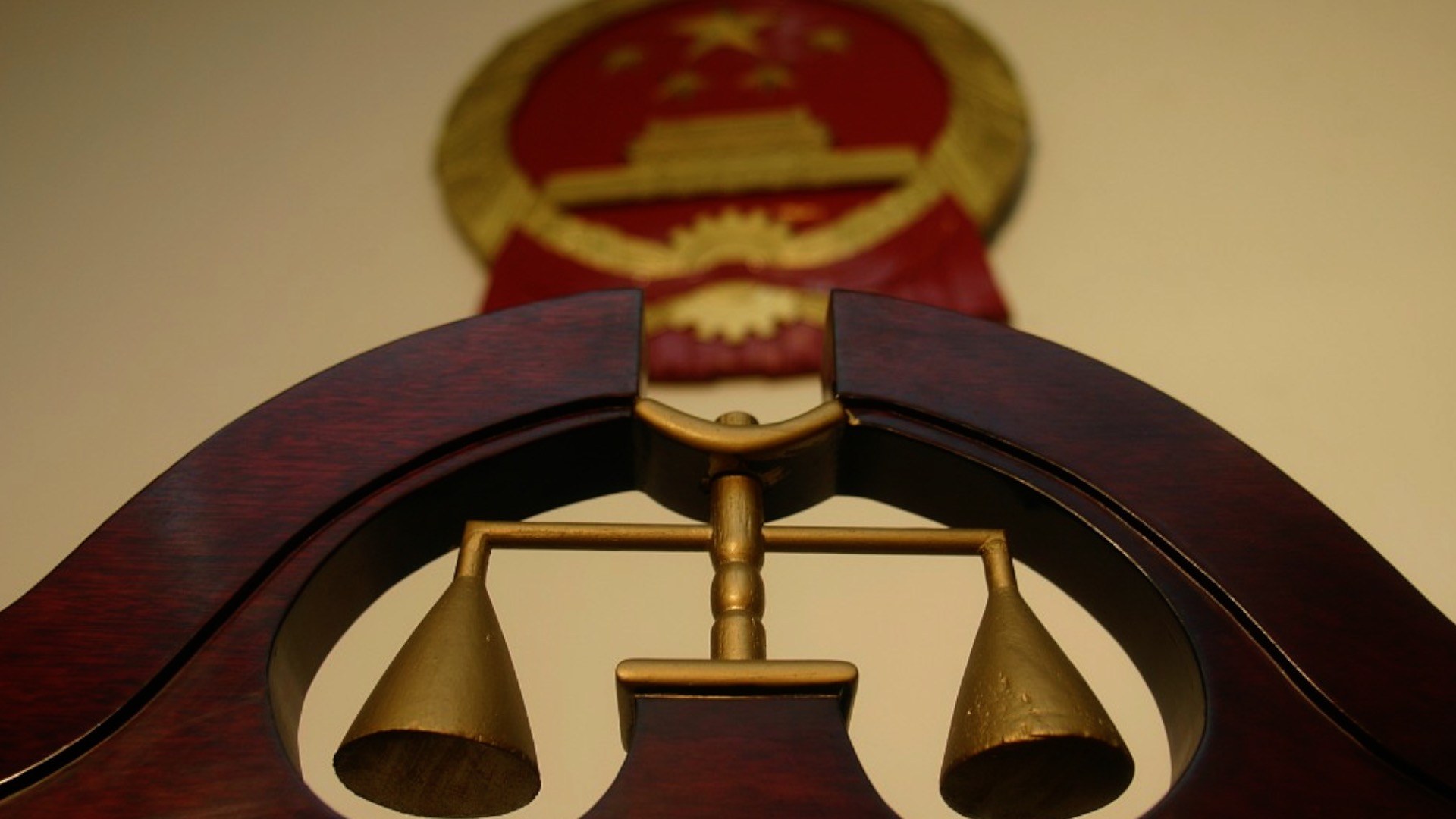
The advancement of law-based governance has become one pillar of China's four-pronged comprehensive strategy for building socialism with Chinese characteristics since 2012.
In a report delivered at the opening session of the 20th National Congress of the Communist Party of China (CPC) on Sunday, Xi Jinping mentioned the term of "rule of law" 23 times, highlighting the importance the Party has attached to the sector.
"We must work to ensure that the people feel fairness and justice prevail in every judicial case," Xi said.
People come first
On May 28, 2020, over 2,000 deputies to the 13th National People's Congress, the country's top legislature, at the Great Hall of the People in Beijing broke into long applause as the Civil Code was adopted.
Hailed as "a declaration of the people's rights in the new era" and dubbed "an encyclopedia on social life," the law protects Chinese citizens' rights from cradle to grave.
China has also put in place a legal Great Wall to safeguard national security. It passed laws and regulations including the Anti-Foreign Sanctions Law in 2021 and adopted countermeasures against extraterritorial application of foreign legislation.
By the end of September 2022, China had 293 laws and 598 administrative regulations in effect, with more than 13,000 regional regulations, said Yin Bai, deputy secretary-general of the Commission of Political and Legal Affairs of the CPC Central Committee, at a briefing held by the Press Center for the 20th CPC National Congress in Beijing on Wednesday.
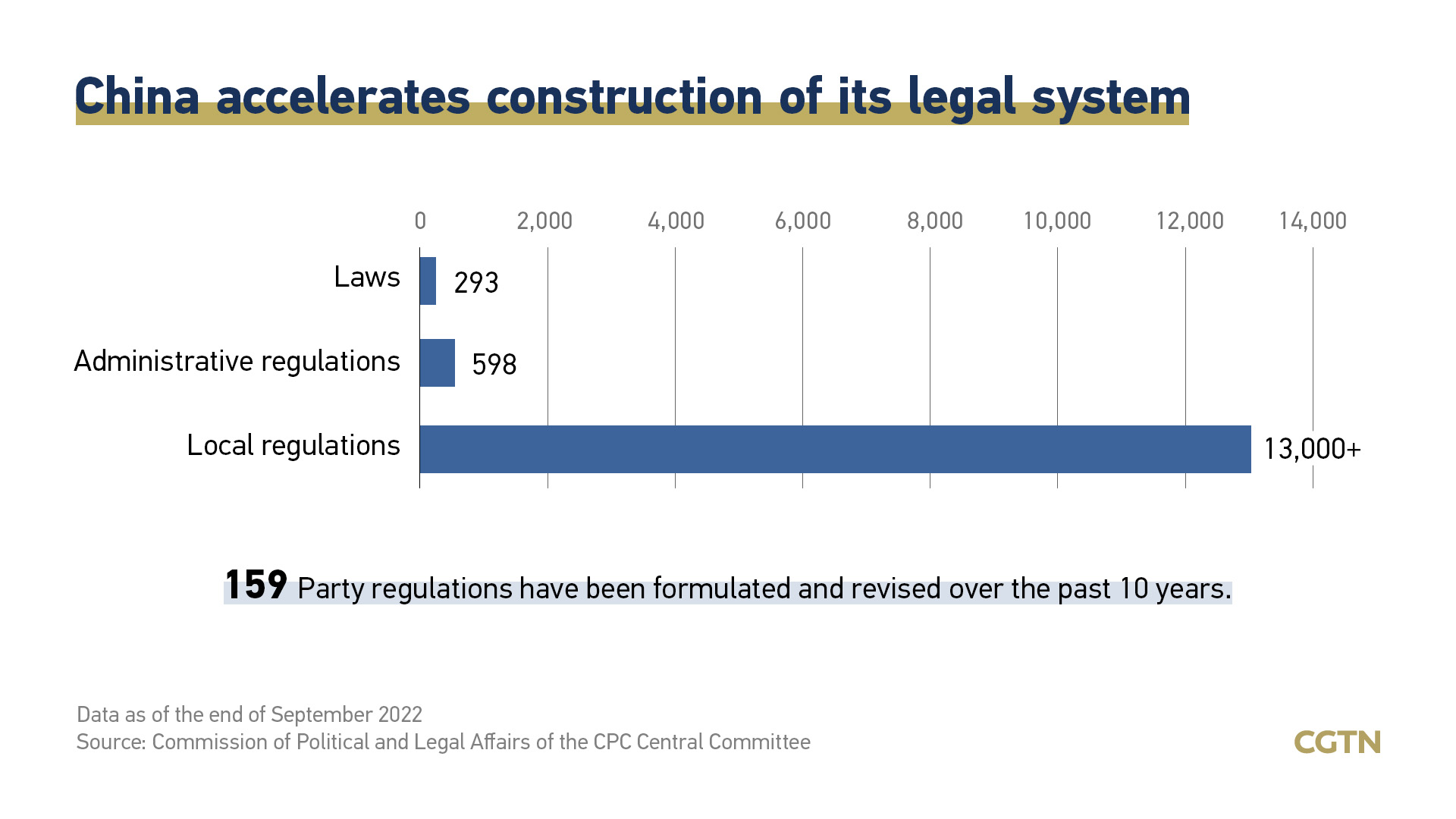
Over the past decade, 159 Party regulations have been enacted or revised, Yin said.
Solid achievements have also been made in judicial system reform. For instance, in terms of judicial transparency, China has made public not only court proceedings and judgments, but also trial procedures and the execution of effective judgments; not only the final verdict but also the reasons for the verdict.
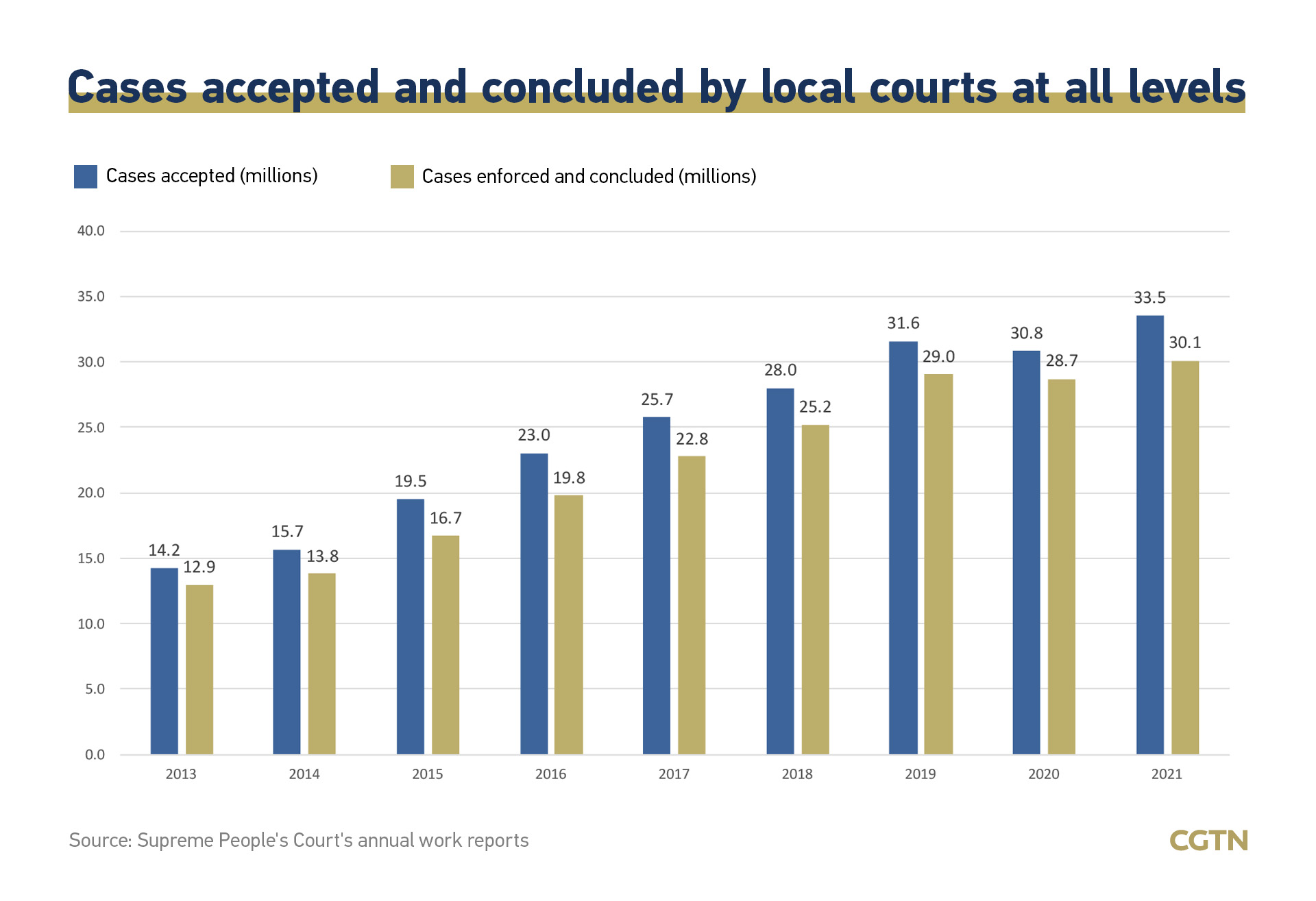
The public can access such information not only through media outlets, official websites, white papers and press conferences, but also via 12368 service line and relevant social media platforms such as WeChat and Weibo accounts.
China has also been promoting the reform of the criminal procedure system with a focus on court proceedings and strictly adhering to the principles of legality, evidence-based verdicts and presumption of innocence.
The pre-trial detention rate for criminal cases dropped to 28.3 percent in the first nine months of 2022 from 69.7 percent in 2012, said Tong Jianming, first deputy prosecutor general and deputy secretary of the Party Leadership Group of the Supreme People's Procuratorate.
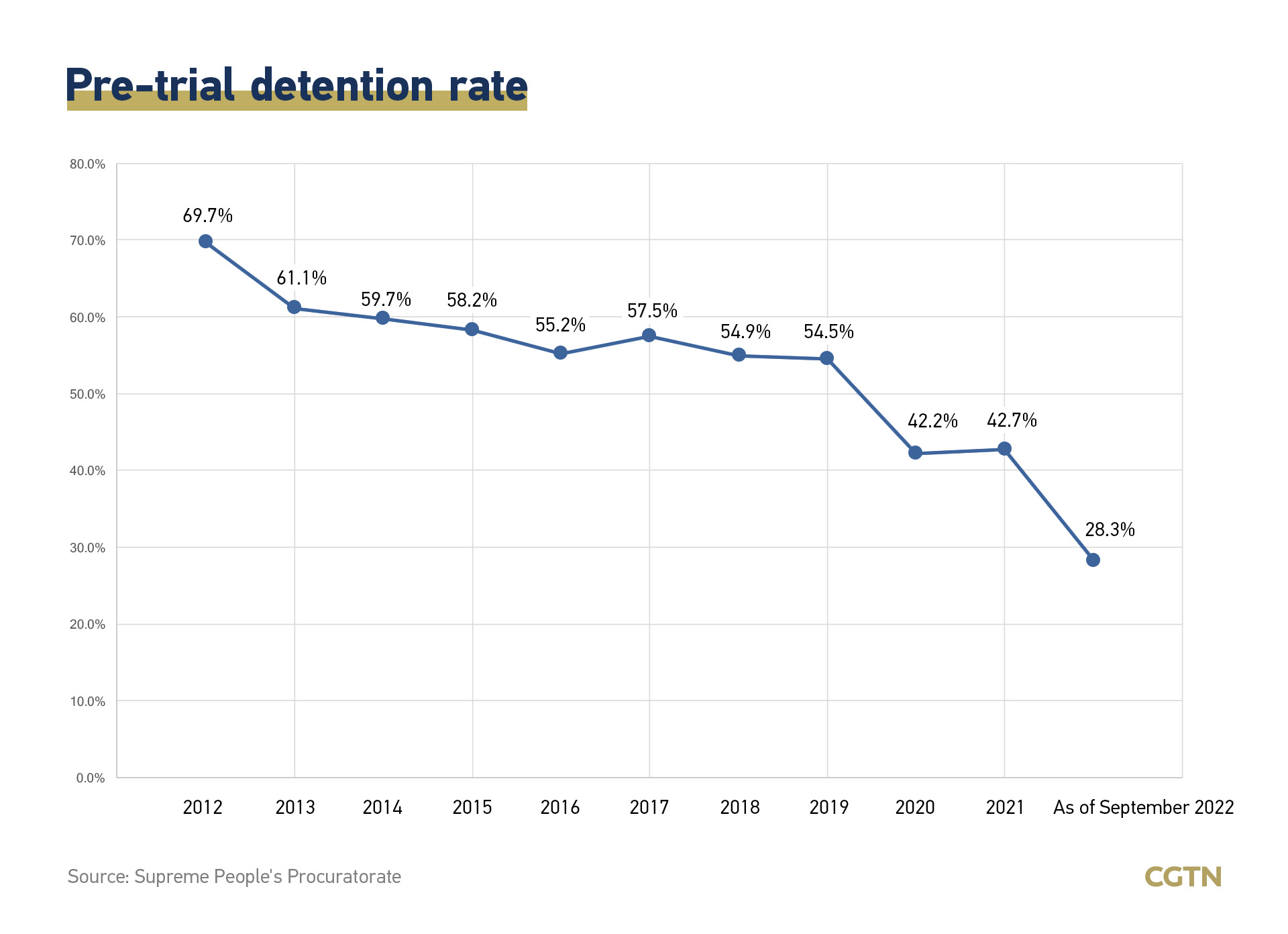
"This has shown the solid progress in advancing the judicial system," said Tong.
A rule of law government
As an ancient Chinese saying goes, "Strict implementation of laws leads to order, while lax implementation of laws leads to disorder."
In an outline for the implementation of a rule of law government (2021-2025) issued in August 2021, China highlighted the importance of improving systems of exercising oversight over administrative powers, and called for greater transparency.
China will build a government that is open, impartial, clean, efficient and honest, with properly defined functions, statutory powers and responsibilities, and strict law enforcement, according to the outline.
Speaking on the "Rule of Law in China over the Past Decade" in July, Huang Wenyi, dean of the Renmin University of China Law School, said China had prioritized the reforms to streamline administration and delegate power, enhance regulation and upgrade government services.
The State Council, for instance, has canceled or delegated to the lower levels 47 percent of administrative approval items and cut 71 percent of intermediary services for administrative approval, said Huang.
"These reforms have, to a large extent, lifted the curbs on companies, resolved concerns for the people, and freed up space for the market. They've also helped make a cleaner government, and unlock market vitality and public creativity," he said.
'One of the safest countries'
At Wednesday's briefing, Xu Ganlu, vice minister of public security and head of the National Immigration Administration, said China has one of the lowest rates of homicide, criminal offenses and gun-related crimes in the world.
According to a survey conducted by the National Bureau of Statistics in 2021, about 98.6 percent of respondents said they felt safe living in the country, an increase of 11 percentage points compared with 2012.
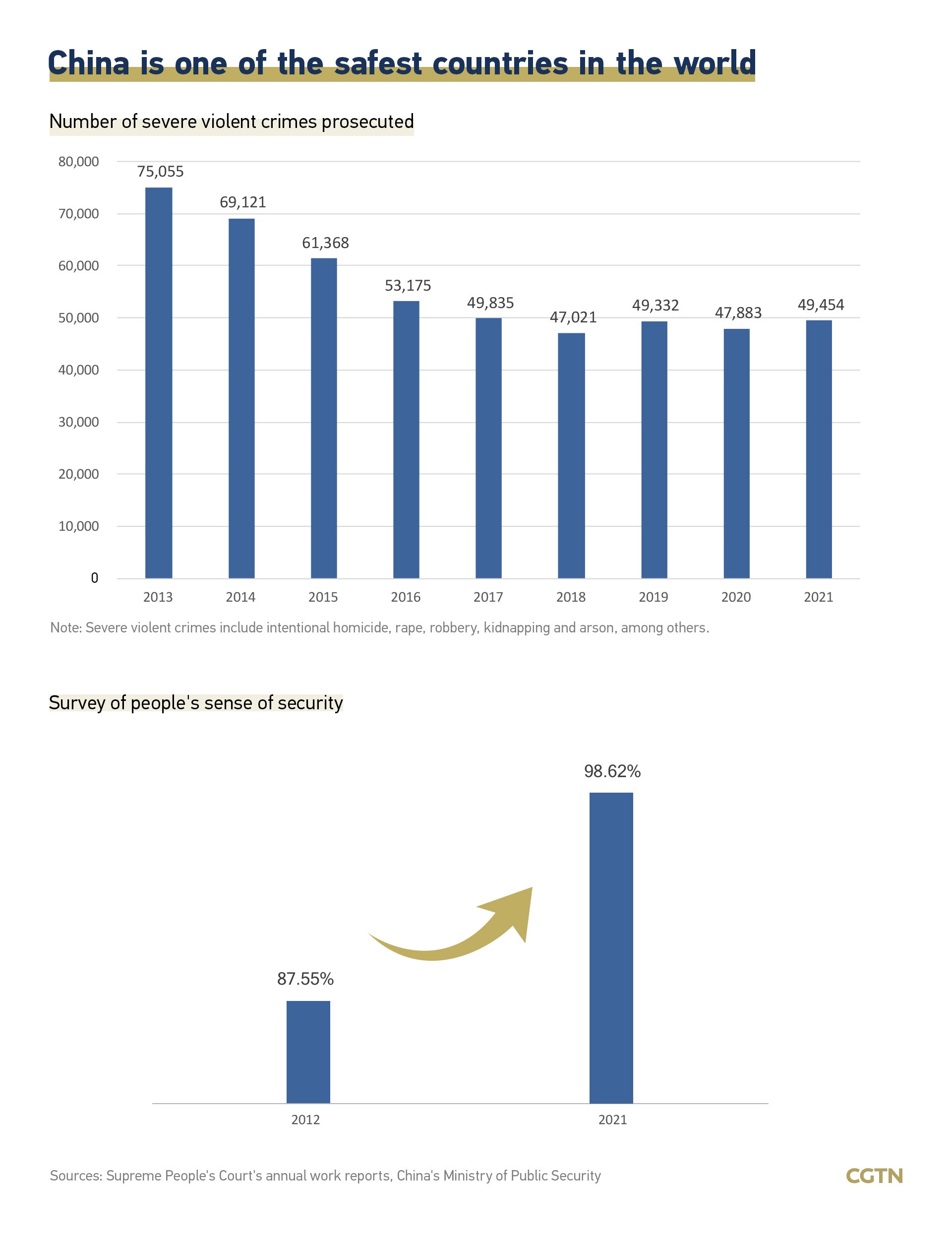
Citing the data, Xu said, "China is now widely recognized as one of the safest countries in the world."
(Cover: A judge and his colleagues from a mobile court in Gongshan County, Lisu Autonomous Prefecture, Nujiang, southwest China's Yunnan Province, August 30, 2019. /Xinhua)
(Story by Chen Guifang, Graphics by Zhao Hong and Li Jingjie)